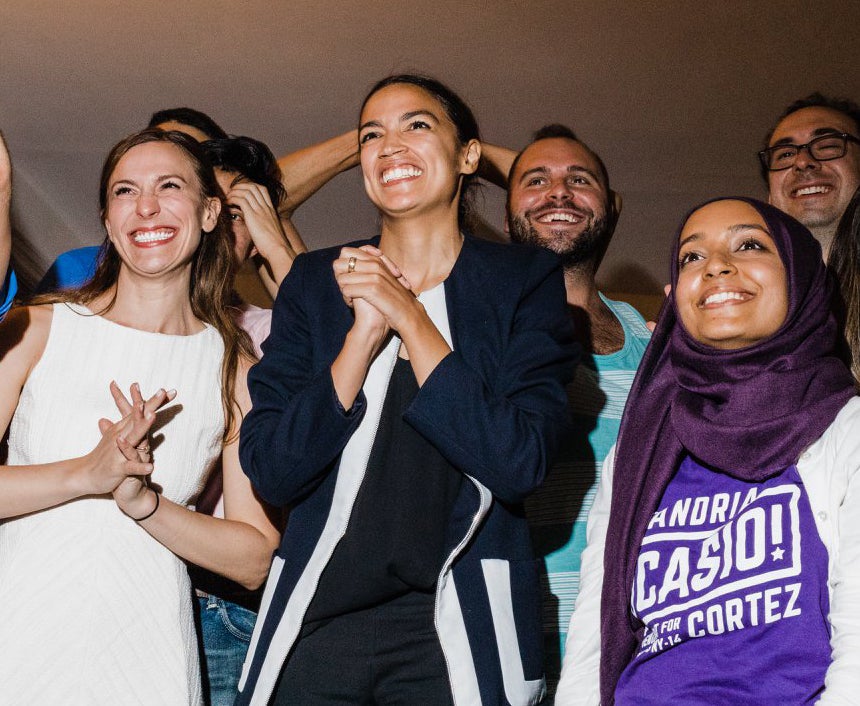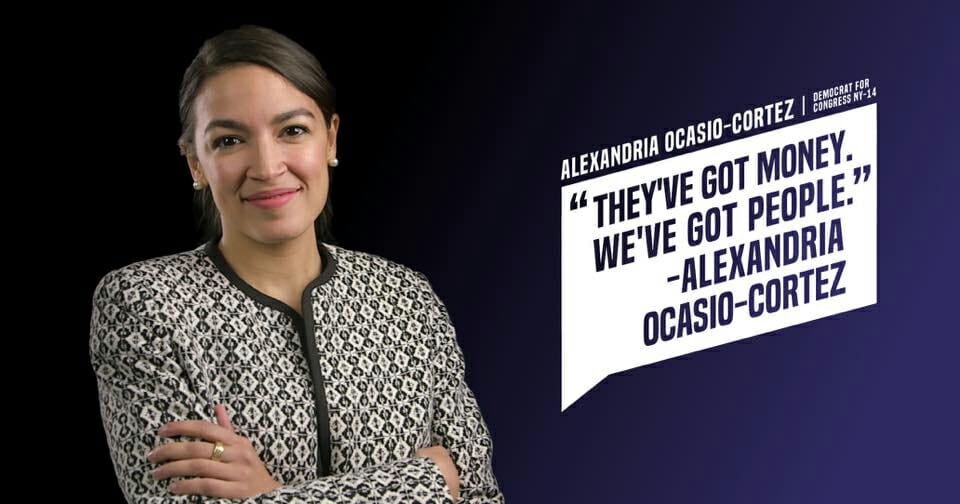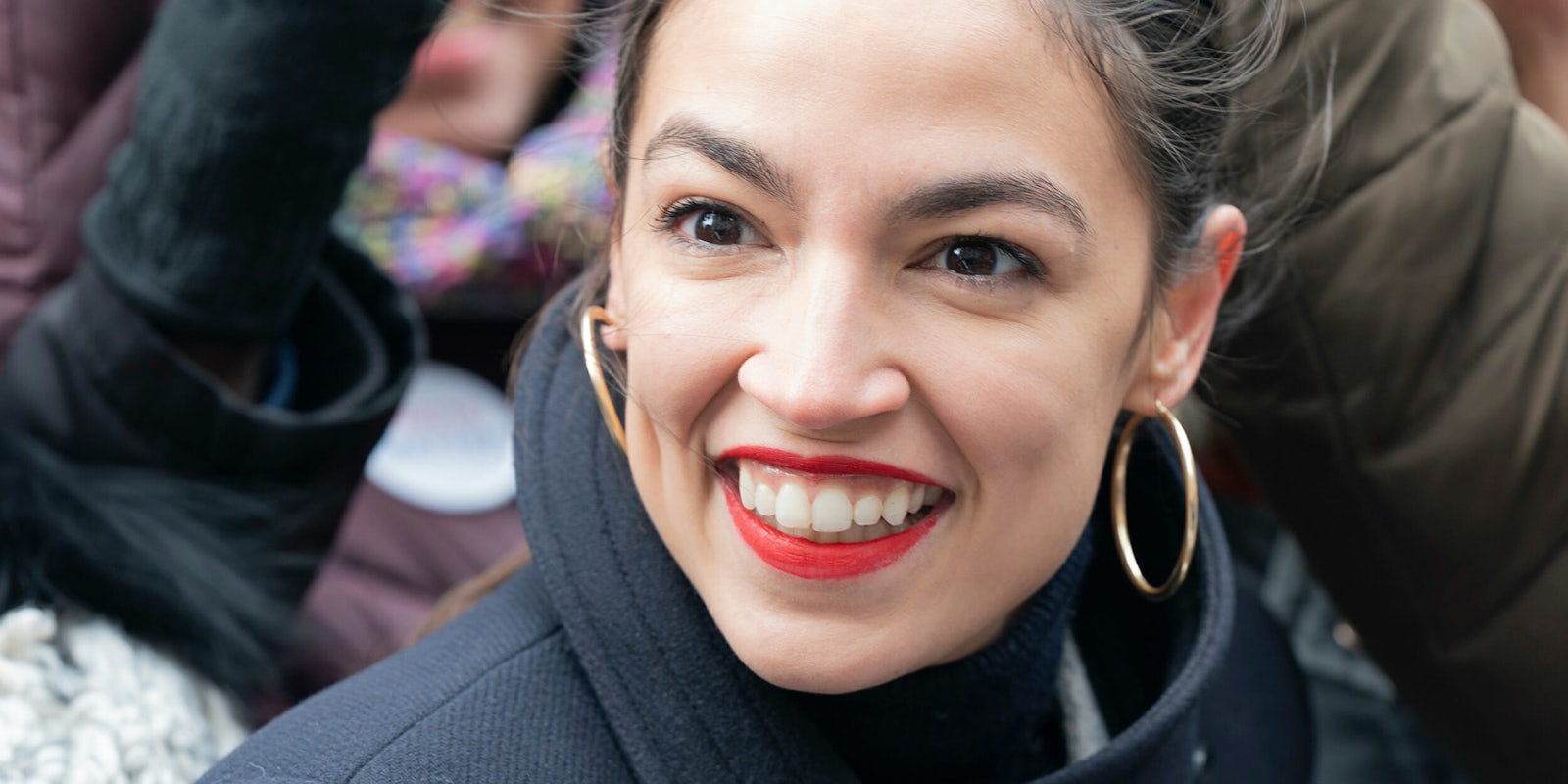With the exception of Sen. Bernie Sanders (I-Vt.) and perhaps Cynthia Nixon, 29-year-old Alexandria Ocasio-Cortez is the most prominent socialist in America. While Nixon’s fame as an actress and Sanders’ tenure in the Senate predate the resurgence of socialism in America, the Alexandria Ocasio-Cortez platform has become synonymous with the rise of socialism in American political life.
Ocasio-Cortez was endorsed by the Democratic Socialists of America and she was the first DSA-endorsed candidate to break through in the 2016 midterm primaries after she defeated longtime incumbent Joe Crowley in the Democratic primary for New York’s 14th district. It is unproductive, however, to view American socialism and DSA as monolithic.
Alexandria Ocasio-Cortez platform: Everything you need to know
There are active disagreements on a number of issues within DSA, and in fact, DSA and Ocasio-Cortez diverge on several issues. While all socialists believe in a class struggle between the rich and the poor, fighting oppression resulting from factors like race, class, and sexual orientation, and ownership of the means of production by workers, they often have different strategic ideas of what that can look like in our current political moment.
Rather than thinking about what Ocasio-Cortez believes as defining socialism, look at her policies as one vision of socialism.
And while Fox News might engage in scaremongering around her political beliefs and those to the left of Ocasio-Cortez might express frustration that her stances don’t go far enough, an examination of her positions reveals that she at once represents a radical shift in American politics and presents a set of ideas that are not so far off from the existing progressive wing of the Democratic party.
Healthcare
On her website, instead of the heading “Healthcare” Ocasio-Cortez uses “Medicare for All.” When Ocasio-Cortez arrives in Congress, she will be one of the most outspoken, unequivocal supporters of Medicare for All. Unlike some watered-down versions of universal healthcare floating around Washington, Ocasio-Cortez backs a system that would include “full dental, vision, and mental healthcare” and would allow “all people in the US to buy into a universal healthcare system.”
Medicare for All, articulated by figures like Ocasio-Cortez and Sanders, is also one single public program that is free at the point of service (no copays).
Like Randy “Ironstache” Bryce, who also supports Medicare for All, Ocasio-Cortez had a personal experience that led her to support truly universal healthcare.
Her father died after a prolonged battle with small-cell carcinoma in 2008. She told Rolling Stone about what it’s like to “have medical debt, but you also have credit card debt for the things that the medical debt doesn’t cover.” She added, “Unlike most members of Congress, I know what it’s like to be making $30 or $40K and have to pay almost $200 bucks a month for an $8,000 deductible.”

Immigration
Ocasio-Cortez made national headlines when she took time during the home stretch of her campaign to visit an ICE detention center on the Mexican border. Abolishing ICE has been a centerpiece of her immigration platform from early in her candidacy, and as a Latinx woman representing a largely Latinx district (New York’s 14th is 60 percent Latinx and 40 percent speak Spanish as their primary language), we can expect that she will continue to frame immigration as a signature issue in office.
Ocasio-Cortez begins describing her immigration platform by saying, “It’s time to abolish ICE, clear the path to citizenship, and protect the rights of families to remain together.” She goes on to compare the inhumane treatment of immigrants today to pre-Patriot Act immigration enforcement by INS and points out that today, ICE is not under the jurisdiction of the DOJ.
Some on the left say that abolishing ICE while giving its duties to an INS-style department wouldn’t fix the problem. Ocasio-Cortez has clarified this point in an interview with The Intercept, in which she said:
I’m starting to see, particularly, other congressional candidates say: ‘Let’s return to the INS.’ And that I want to make sure is not correct either. This is not about going back to the INS. This is really about, in some ways, we need to go all the way back to the root of our immigration policy to begin with… I think to reimagine our immigration services as part of an economic engine, as part of an accommodation to our own foreign policy aims and, where necessary, enforcement of serious crimes like human trafficking and so on.
This is an important point of discussion because, while the left is united in abolishing ICE, there is by no means an agreement about what the future of immigration policy looks like after that happens.
Jobs, housing, and the economy
Rent control has become such an important issue in crowded urban areas like New York, Los Angeles, and San Francisco that serious progressive politicians in those areas have come to view housing on par with the issues like jobs and the economy when shaping their platforms.
Ocasio-Cortez believes that “Housing is a Human Right,” and as such, she supports a low-income tax credit for housing, funding the National Affordable Housing Trust Fund, and looking at options like rent control and vacancy taxes as avenues to housing justice.
A federal jobs guarantee is one of Ocasio-Cortez’s signature economic priorities. For her, this would guarantee of a $15 minimum wage, full healthcare, and child/sick leave. While there is some support for a jobs guarantee on the left, leftists policy analysts like Matt Bruening have been critical of jobs guarantees for a variety of reasons: foremost among them being the requirement of “work” in an era of increased automation.
Her other major economic proposals represent a more unified vision from the left. Ocasio-Cortez wants to restore the Glass-Steagall Act and vigorously regulate Wall Street, she rejects the idea of a bank that is “too big to fail,” and she wants to revitalize the postal service by adding banking functions to the USPS, a policy proposal that generally enjoys approval from the left.
READ MORE:
- Who’s going to challenge Trump in 2020? Here are the super-early contenders
- Could Bernie Sanders run—and win—in 2020?
- Where does Beto O’Rourke stand on policy?
- Will Kamala Harris run in 2020?
Criminal justice
The criminal justice priorities of Ocasio-Cortez read like a blueprint for solid left-wing reform. She sets ending mass incarceration, the war on drugs, and the school to prison pipeline as her broad goals.
As a means of achieving these goals, she favors legalizing marijuana, ending for-profit prisons, releasing non-violent drug offenders, bringing an end to cash bail, and demanding full investigations when an individual is killed by law enforcement.
Some strategic moves she wants to make in the legal system as she works toward these goals include better funding for public defenders and ending corporate arbitration.

Foreign policy
In terms of domestic policy, Ocasio-Cortez is in line with the broader left, however, she has received criticism from left-wing organizations, and specifically members of DSA, for her foreign policy. While DSA fully supports Palestinian liberation and the BDS (boycott, divestment, sanctions) movement against Israeli occupation, Ocasio-Cortez has sometimes played both sides of the issue. It is worth noting that Bernie Sanders has faced similar criticism.
On other foreign policy matters, Ocasio-Cortez is more closely aligned with left-wing orthodoxy. She is a staunch critic of what she views as a colonial relationship between the United States and Puerto Rico (where she has relatives). She has outlined a five-point plan that would mark a sweeping shift in the U.S. relationship with Puerto Rico, including a “Marshall Plan for Puerto Rico” that would involve “helping the island not only recover from Hurricane Maria but thrive with modern infrastructure and renewable energy systems.”
Ocasio-Cortez also advocates for what she calls a “Peace Economy.” In outlining her foreign policy platform, she states that she “believes that we must end the ‘forever war’ by bringing our troops home, and ending the air strikes that perpetuate the cycle of terrorism throughout the world.”
Women’s rights
As we’ve learned from the likes of Senators Lisa Murkowski (R-Alaska) and Susan Collins (R-Maine), being a woman does not guarantee a progressive stance on women’s issues.
Ocasio-Cortez has one of the most intersectional and progressive platforms in American politics when it comes to women’s rights. Her priorities include equal pay, paid parental leave, decriminalization of sex work, and complete reproductive freedom.
In her policy proposals, she explicitly mentions protections for POC women, indigenous women, immigrant women, trans women, and Muslim women. She uses the forward-thinking phrase, “women of marginalized genders” when articulating her policies around patriarchal oppression.
Ocasio-Cortez outlines policy demands that call for “open access to safe, legal, affordable abortion, birth control, and family planning services, as well as access to adequate, affordable pre- and post-natal care, for all people, regardless of income, location, and education.”

READ MORE:
- There’s no such thing as the ‘alt-left’—and here’s why
- Who is Candace Owens, Kanye West’s favorite new thinker?
- What’s stopping Elizabeth Warren from running for president in 2020?
- Kirsten Gillibrand may not run in 2020, but she’ll stand up to Trump
Higher education
“It’s now time to expand our national education system to include tuition-free public college and trade school,” Ocasio-Cortez writes, kicking off one of the most progressive higher education plans in American politics. In addition to tuition-free college, she also supports a “one-time policy of student debt cancellation” which involves federal loan forgiveness and the buy back of privately owned loans. She argues that such a movement would stimulate the economy, boosting GDP by hundreds of billions of dollars.
All told, the platform provides one vision of what a socialist movement in America could look like, even if it’s not completely in line with what some DSA members believe.
Editor’s note: This article is regularly updated for relevance.
